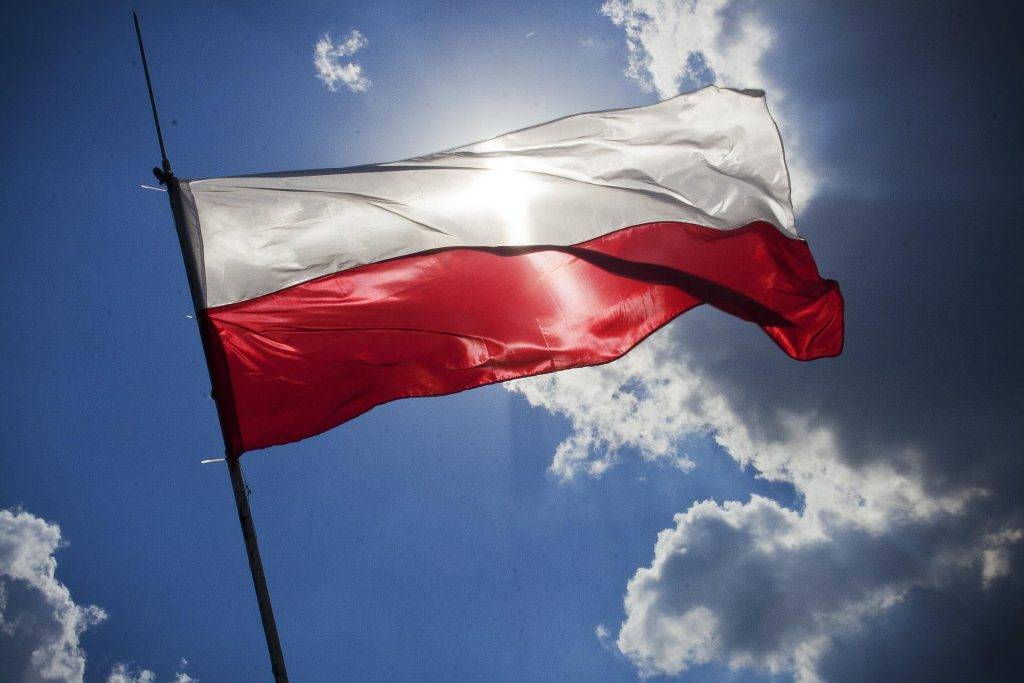News
#PolandFirstToHelp: How Poland is using humanitarianism to boost its propaganda

Most of the news coverage about the Russian-Ukrainian war propaganda has been about Russian disinformation and Volodymyr Zelensky’s effective war time messaging.
After Zelensky’s viral appearance at the Grammys and Boris Johnson’s recent visit to Kyiv, Ukraine appears to be winning the information war. But media coverage has focused much less on how other countries’ propaganda machines are working to push certain narratives.
The Polish media has portrayed the country’s reception of 2.5 million refugees from Ukraine positively. This pro-messaging fails to acknowledge Poland’s history of anti-immigrant and anti-refugee policies, the violence and racism faced by refugees of colour at the Belarusian border and the cries for help from cities overwhelmed by refugees.
While many governments use humanitarianism to shore up national identity and attract external resources — like how Hungary inflated their refugee numbers to seek funds from the European Union — the Polish government’s #PolandFirstToHelp campaign is both visible and effective.
In accepting the largest number of refugees from Ukraine with an open-door policy, Poland is no doubt helping many victims of forced displacement. But the country’s double standards and propaganda campaigns are holding it back from making real political and social changes.
Card stacking propaganda
Propaganda is “the spreading of ideas, information or rumour for the purpose of helping or injuring an institution, a cause or a person.”
Scholars like Clyde Miller are careful to point out there is a difference between “good” and “bad” propaganda. Similarly, political scientist Renee Marlin-Bennett notes that “propaganda is not necessarily disinformation, it’s biased information.”
Poland’s social media campaign #PolandFirstToHelp is a clear example of card-stacking propaganda, which focuses only on only good news, while problems are left out or lied about. The social media campaign highlights the positive ways Poland has been helping Ukrainian refugees, while burying the negative stories.
The campaign was a response to reports that refugees of colour were experiencing racism at the Ukrainian-Polish border. Instead of taking accountability for the discrimination faced by racialized refugees, the Polish government condemned any accusations of racism as “fake news.”
Images like a photo of empty strollers left for refugees at a train is an example of the kind of content posted under the #PolandFirstToHelp hashtag. This overly positive portrayal of Polish generosity hides the fact that not all refugees are getting a warm welcome.
A Twitter video posted on March 3, 2022, shows refugees of colour being heckled as they get off a bus from Ukraine:
Polish locals can be heard saying (translated from Polish):
- “Where are the f–king women with kids?”
- “Where are the women and kids from Ukraine?”
- “What happened to you? Why are you all wearing blackface?”
Flag-waving propaganda
Flag-waving is another type of propoganda that justifies actions by using nationalism or patriotism.
The combination of the two countries’ flags is being shared with the hashtag #PolandFirstToHelp. There’s an image of two women embracing with each wearing their country’s flag and another one of the merging of the two countries’ crests. Poland’s postal service even issued a new stamp with hands shaking that are painted in the two countries’ colours.
Poland is attaching itself and its flag to the Ukrainian flag to illustrate unity. However, these images hide a difficult history between the two countries.
The deputy director of the Centre for Eastern Studies, Wojciech Konończuk, wrote about the Volhynia Massacre that resulted in the killing of up to 100,000 Poles by the Ukrainian Insurgent Army in 1943–44:
“On the last National Day of Remembrance, Prime Minister Morawiecki stated, ‘We will never forget the martyrdom of many tens of thousands of Poles … and we will never allow this terrible and important part of history to be erased or falsified.’”
Plain folks propaganda
Another type of propaganda is known as plain folks. It is employed when regular people are used to sell a product or idea. In this popular video made by Visegrád24 — a media group that curates “news, politics, current affairs, history and culture from the Visegrád countries” (Poland, Czech Republic, Slovakia and Hungary) — an emotional Ukrainian soldier thanks Poland for taking in his family. The video is filled with images of women and children refugees, Polish and Ukrainian flags and emotional music.
Left out of this narrative is the fact that Visegrád lobbied against the EU’s proposal to relocate Syrian asylum seekers across the region in 2015. This lobbying led to one of Poland’s members of parliament, Dominik Tarczynski, to say “we will not receive even one Muslim because this is what we promised.”
This lobbying contradicts the image of wide refugee acceptance that is being promoted by Poland and groups like Visegrád24.
A chance to engage in tough conversations
Refugees fleeing war and conflict deserves safe passage and the right to be treated with dignity and respect. Refugees crossing the Polish border should not fear being attacked because they are not white.
PolandFirstToHelp rallied the nation around a common cause after a decade of political polarization. However, this moment of unity rests of an unstable foundation. There is a real opportunity for Poland to emerge from this refugee crisis as a more united, accepting and economically strong society.
But in order to do, that the country needs to engage in tough conversations about successful refugee integration that addressees long standing issues of xenophobia. Brushing the mistreatment of racialized refugees under the rug does not address the racism at root of the discrimination and ensure future refugees will not have to live through the same treatment.
Yvonne Su, Assistant Professor in the Department of Equity Studies, York University, Canada
This article is republished from The Conversation under a Creative Commons license. Read the original article.





















